
International Summer School
August 28-31 2023, Interlaken (Switzerland)

International Summer School
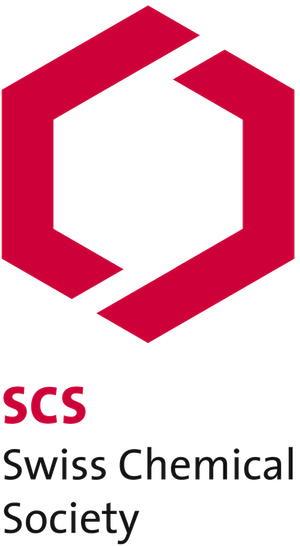
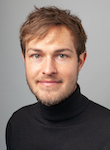
Dr. Alexander Bagger, Imperial College London (United Kingdom)
Alexander Bagger is a research fellow in the Department of Chemical Eng., at Imperial College London, where he works on understanding selectivity challenges at the atomic scale for electrochemistry reactions. He received his PhD in Theoretical Electrochemistry from the group of Professor Jan Rossmeisl at the University of Copenhagen, Denmark, in 2019. In his PhD work, he developed theoretical frameworks to understand and predict product distribution from electrochemical CO2 reduction, with landmark works such’s as a classification approach to catalyst selectivity. Following his PhD, he had a short exit into industry, working at prominent and well-known IBM. Back pursuing an academic career within electrochemistry as a postdoc at University of Copenhagen, he won a personal grant; The Carlsberg Foundation Internationalisation Fellowships grant, which is one of the most prestigious grants awarded for excellent basic research at the highest international level for a research stay at Imperial College London. Besides he has been awarded the ISE travel grant, Marie-curie seal of excellence, and Royal Society of Chemistry Grants for Carers.
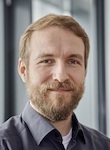
Prof. Robert Francke, Leibniz Institute for Catalysis, Rostock, Germany
Robert Francke studied chemistry at Bonn University (Germany) and Alicante University (Spain). In 2012, he completed his PhD with Prof. S. R. Waldvogel at Mainz University (Germany), working on new electrolyte systems for electrochemical energy storage. He then joined the group of Prof. R. D. Little at the University of California Santa Barbara. There he conducted research in the field of organic electrochemistry as a postdoc and Feodor Lynen fellow (Alexander von Humboldt Foundation). In 2014, he started his independent career at Rostock University with a Liebig Fellowship (Fonds der Chemischen Industrie). After his habilitation in 2020, he joined the Leibniz Institute for Catalysis in Rostock, where he currently leads the research department “Electrochemistry & Catalysis”. Since 2022, he is also Full Professor at Rostock University and Heisenberg Fellow (German Research Foundation). His research focuses on the catalysis of electro-organic reactions and CO2 reduction, as well as on the development of sustainable electrolyte concepts.
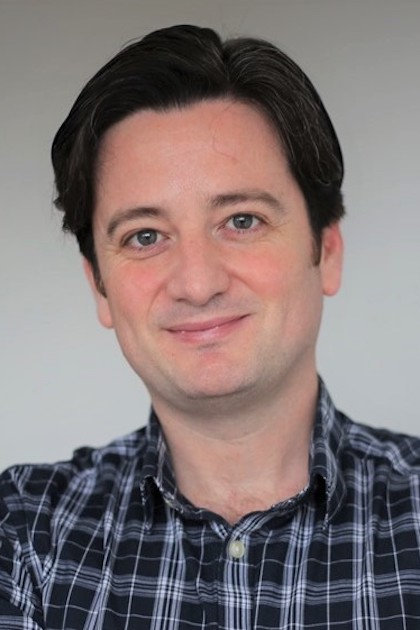
Dr. Guillén-Gosálbez, ETH Zurich
Dr. Gonzalo Guillén-Gosálbez completed his M.Eng. in Chemical Engineering from Universidad de Murcia (Spain), and his Ph.D. in Process Systems Engineering at Universitat Politècnica de Catalunya (Spain), working afterward as Fulbright Scholar at Carnegie Mellon University (US). He then joined the Department of Chemical Engineering at Universitat Rovira i Virgili (Spain) in 2008, before moving to The University of Manchester (UK) in 2014 and to Imperial College London (UK) in 2016. Since February 2019, he works as Professor in Chemical Systems Engineering in the Institute for Chemical and Bioengineering of ETH Zürich (Switzerland).
Dr. Guillén-Gosálbez’s research interests focus on the simultaneous optimization of the environmental and economic performance of chemical processes. He currently sits on the Editorial Boards of the journals Sustainable Production and Consumption and Helvetica, and participates in the steering committee of the NCCR Catalysis National Centre of Competence in Research and in the EU panel on Safe and sustainable by design chemicals and materials. He has received several awards, including the Top Doctoral Student Award (Universitat Politècnica de Catalunya, Spain), the Fulbright Postdoctoral Scholarship, and the Young Investigator Award of the Spanish Royal Academy of Engineering.
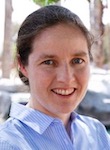
Prof. Sophia Haussener, EPFL Lausanne
Sophia Haussener is an Associate Professor heading the Laboratory of Renewable Energy Science and Engineering at the Ecole Polytechnique Fédérale de Lausanne (EPFL). She received her PhD (2010) in Mechanical Engineering from ETH Zurich. Between 2011 and 2012, she was a postdoctoral researcher at the Joint Center of Artificial Photosynthesis (JCAP) and the Energy Environmental Technology Division of the Lawrence Berkeley National Laboratory (LBNL). She is the vice president of EPFL’s research award commission (since 2021). She has published over 80 articles in peer-reviewed journals and conference proceedings, and 2 books. She has been awarded the ETH medal (2011), the Dimitris N. Chorafas Foundation award (2011), the ABB Forschungspreis (2012), the Prix Zonta (2015), the Global Change Award (2017), a Starting Grant of the Swiss National Science Foundation (2014), and the Raymond Viskanta Award on Radiative Transfer (2019). She is a co-founder of the startup SoHHytec aiming at commercializing photoelectrochemical hydrogen production. She is the former chair of the American Society of Mechanical Engineers (ASME) Solar Energy Division, a member of the scientific board of the Liquid Sunlight Alliance, and acts as a Member of the Scientific Advisory Council of the Helmholtz Zentrum.
Her current research is focused on providing design guidelines for thermal, thermochemical, and photoelectrochemical energy conversion reactors through multi-physics modeling and demonstrations. Her research interests include: thermal sciences, fluid dynamics, charge transfer, electro-magnetism, and thermo/electro/photochemistry in complex multi-phase media on multiple scales.
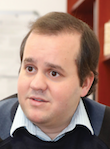
Dr. Csaba Janáky, University of Szgeged (Hungary)
Dr. Csaba Janáky is an associate professor at the University of Szeged, Hungary. He received his PhD from the University of Szeged in 2011, and spent 2 years at the University of Texas at Arlington as a Marie Curie Fellow. He is the principal investigator of the Electrochemistry Research Group, supported three times by the European Research Council. His research interest spans through a broad range of applied electrochemistry. He formed his electrochemical CO2 conversion team in 2017, when he received a dedicated grant from the Hungarian Innovation Fund to develop energy-oriented electrolyser technologies. He is also co-Founder of eChemicles Inc., a start-up company dedicated to scale-up and commercialize CO2 electrolysis technologies. He has published over 100 articles in peer-reviewed journals with an overall impact factor of 850, and filed 4 base patents.
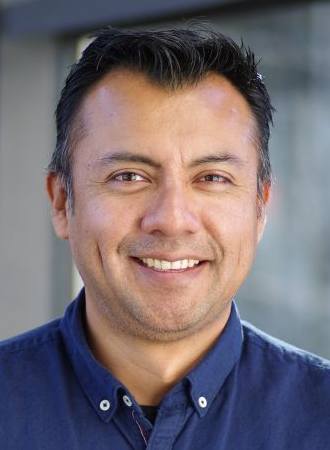
Prof. Carlos Martinez-Huitle, Natal University, Brasil
Carlos A. Martínez-Huitle is graduated in Chemistry at Universidad de las Américas-Puebla (México). He moved to Ferrara (Italy) where he received his PhD in Chemical Sciences at the University of Ferrara (Prof. Achille De Battisti). He also worked as visiting scientist in the group of Prof. Christos Comninellis at the EPFL Institute, Switzerland. He served as faculty member in the Department of Chemistry at the University of Milan (from 2005 to 2008). In 2008, he also moved to Brazil where he currently is a Full Professor in the Institute of Chemistry at the Federal University of Rio Grande do Norte. In 2018, he participated as visiting senior researcher at the University of Mainz under supervision of Prof. Waldvogel. The Martínez-Huitle’s lab, Laboratory of Environmental and Applied Electrochemistry (LEAA), focus in the design and applicability of Sustainable Development Goal 6 based-electrochemical solutions as for water treatment, clean water and sanitation. Testing several electrocatalytic materials, the potential of decentralized water and wastewater treatment using electrified processes helps to their implementation in the Latin American region. Innovative strategies as photoelectrocatalysis, electroorganic synthesis, simultaneous green hydrogen production and waste valorization driven by renewable energies, represent other decontamination water alternatives that are developed in the LEAA in meeting the nexus concept, circular economy and sustainability. In 2022, LEAA is a member of the National Hydrogen Projects in collaboration with other 10 Brazilian labs.
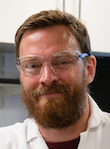
Prof. Erwin Reisner, University of Cambridge (UK)
Professor Erwin Reisner received his education and professional training at the University of Vienna (PhD in 2005), the Massachusetts Institute of Technology (postdoc from 2005-2007) and the University of Oxford (postdoc from 2008-2009). He joined the University of Cambridge as a University Lecturer in the Department of Chemistry in 2010, became a Fellow of St. John’s College in 2011, was appointed to Reader in 2015 and to his current position of Professor of Energy and Sustainability in 2017. He started his independent research programme on artificial photosynthesis (solar fuels) with the support of an EPSRC Career Acceleration Fellowship (2009-2015), which also received substantial early support by the Christian Doppler Laboratory for Sustainable SynGas Chemistry (2012-2019). In 2016, he received a European Research Council (ERC) Consolidator Grant to develop the field of semi-artificial photosynthesis (biohybrid systems for solar fuel synthesis) and has recently been awarded an ERC Advanced Grant (now funded by the UKRI underwrite scheme) on semi-biological domino catalysis for solar chemical production. He is the academic lead (PI) of the Cambridge Circular Plastics Centre (CirPlas; since 2019), where his team develops solar-powered valorisation technologies for the conversion of solid waste streams (biomass and plastics) to fuels and chemicals. He has acted as the academic lead of the UK Solar Fuels Network, which coordinates the national activities in artificial photosynthesis (2017-2021) and is currently a co-director of the Centre for Doctoral Training in Integrated Functional Nano (nanoCDT) in Cambridge as well as a member of the European research consortia ‘Sofia’ and ‘solar2chem'.
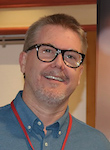
Dr. Richard Smith, Wiley-VHCA AG
Richard J. Smith received his PhD in organic chemistry with Stefan Bienz at the University of Zurich in 2003. In 2002 he joined Wiley-VHCA as an Editorial Assistant. He leads the Swiss office of Wiley and as an Executive Editor he is responsible for all publication steps of Helvetica Chimica Acta. He is also a Senior Associate Editor of Chemistry – A European Journal.
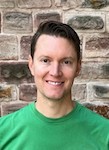
Prof. Chris Scarborough, Syngenta Crop Protection AG
Chris Scarborough, a native of Southern California, received his PhD in organic methods development in 2011 from the University of Wisconsin, where he studied under Professor Shannon Stahl. He was then an Alexander von Humboldt Postdoctoral Fellow at the Max Planck Institute for Bioinorganic Chemistry (now MPI for Chemical Energy Conversion), where he studied physical inorganic and computational chemistry under Professor Karl Wieghardt. Chris then spent five years as an Assistant Professor of Chemistry at Emory University where he established a research group studying green oxidation chemistry. Choosing instead to pursue an industrial career, Chris joined Syngenta in 2017 where he spent a year in process research before taking his current role as group leader in crop protection research chemistry. His current research areas include disease and insect control chemistry and industrial electrochemistry.
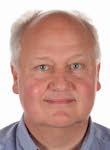
Dr. Günther Schmid, Siemens Energy Global GmbH & Co.
Dr. Günter Schmid, Principal Key Expert Research Scientist, Dept. Transformation of Industry – Sustainable Energy Solutions – Product Management, Siemens Energy Global GmbH & Co. KG.
Günter earned his PhD degree from the University of Ulm (Germany) in 1993 in organometallic chemistry and crystallography. Later, he joined 1994 Texas A&M University (USA) for a postdoctoral position. Since 1996 he is working within the industrial framework of Siemens companies like Siemens Energy, Siemens AG, Infineon AG and Osram in various positions.
He started his carrier in silicon semiconductor industry developing high temperature stable photosensitive dielectrics for chip applications, which are now wildly employed in consumer electronics. Doping of organic semiconductor materials was applied to organic field effect transistors and organic light emitting diodes. Around 2010 he started to work on energy storage materials and electrochemical synthesis. His interest was the single step electrochemical reduction of CO2 with focus areas electro catalysts, gas-diffusion electrodes, industrial electrochemical cell design and operation conditions. The current focus is on alkaline (AEM) and acidic (PEM) polymer electrolyte electrolyzers. Recently, aging mechanisms in Megawatt PEM electrolysers found his attention.
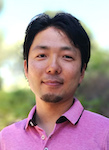
Prof. Atsushi Urakawa, Delft University of Technology, Delft (The Netherlands)
Atsushi Urakawa obtained his BSc degree in Applied Chemistry at Kyushu University (Japan) with one year stay in the USA. He then moved to Europe and studied Chemical Engineering at TU Delft for his MSc degree and obtained his PhD in 2006 at ETH Zurich (Switzerland). He worked as Senior Scientist and Lecturer at ETH Zurich and in 2010 he joined ICIQ (Spain) as Group Leader. In 2019, he undertook a new challenge as Professor of Catalysis Engineering at TU Delft. His team develops novel heterogeneous catalysts and catalytic processes with the aim to minimize the energy usage and negative impacts of such processes on natural environment and human health. The main target reactions are the conversion of CO2 to valuable chemicals, methane activation, environmental catalysis (NOx abatement) and the production of hydrogen with thermo-, electro- and photocatalytic activation.
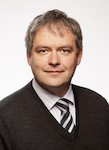
Prof. Siegfried Waldvogel, Johannes Gutenberg University Mainz (Germany)